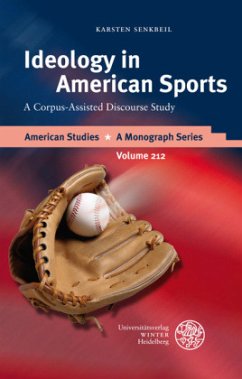Sport competitions belong to the most prominent mass media events in the USA today. To understand the cultural impact that sports have on the American collective consciousness, one must be aware of the overt and covert ideological assumptions that surface in the media discourse around these sport events. With the help of a modern, software-based linguistic methodology (Corpus-Assisted Discourse Studies), this book analyses thousands of journalistic texts from the first decade of the 21st century, to uncover the interplay of dominant hegemonic discourses and subaltern ideological interpretations, which form a more or less stable but constantly challenged and re-negotiated consensus equilibrium in the public discussion around the Americans' 'favorite pastimes'. Core ideologies from American history define the media's interpretations of sports and are therefore central topics in this book: capitalism and rural nostalgia, patriotism and militarism, family values, rugged individualism, and remnants of the frontier mythology. Hence, understanding American sports discourse means understanding the American psyche in a period of challenges and changes.
Bitte wählen Sie Ihr Anliegen aus.
Rechnungen
Retourenschein anfordern
Bestellstatus
Storno

